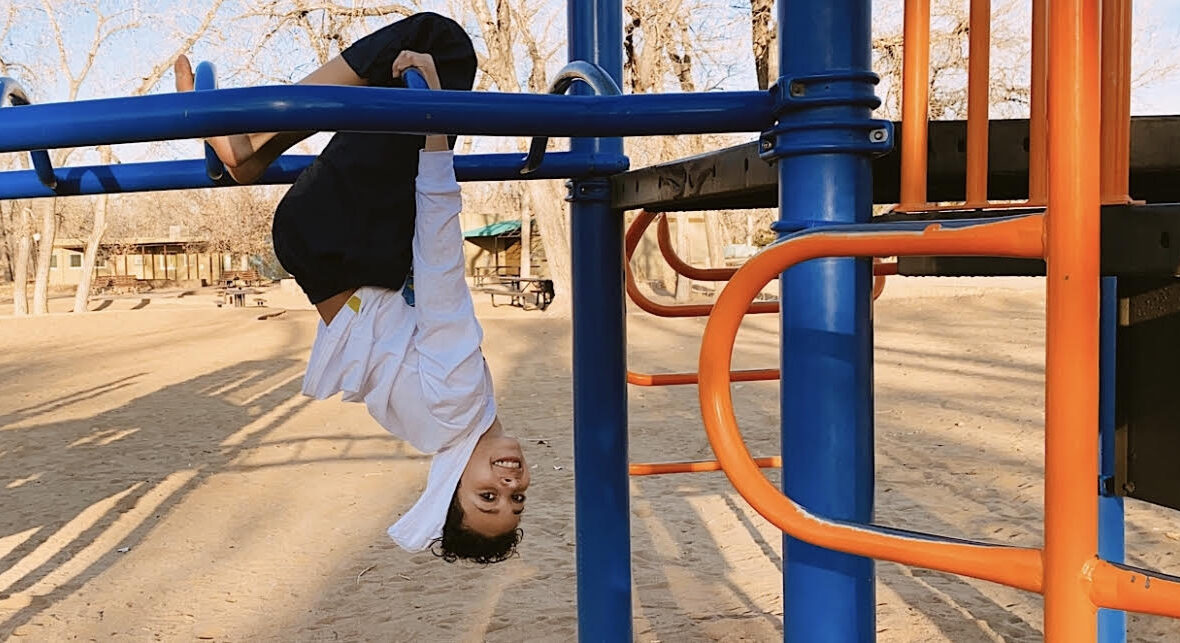
Embark on a journey of empowerment and positivity as we delve into fostering confidence in our children. In this insightful exploration, discover practical tips and heartwarming anecdotes that guide parents toward cultivating a strong and positive self-image in their little ones.
This post is a beacon of encouragement, offering strategies to nurture self-esteem and resilience in facing life’s challenges. Learn how simple daily affirmations, constructive praise, and fostering a supportive environment can lay the foundation for a child’s unwavering self-belief.
From celebrating small victories to embracing individuality, “Raising Confident Kids” unveils the key elements that contribute to a robust sense of self-worth. Together, we can shape a future generation that strides confidently into the world, ready to embrace challenges and triumphs with self-assurance.
The Power of Positive Affirmations
Positive affirmations serve as short, powerful statements that play a crucial role in shaping a child’s self-perception and overall mindset. By integrating these affirmations into daily routines, parents can foster a positive outlook and contribute to the development of a resilient and self-assured mindset in their children.
Parents are encouraged to create a personalized list of affirmations tailored to their child’s unique strengths, qualities, and aspirations. These affirmations can be seamlessly incorporated into daily rituals, such as morning routines or bedtime rituals, providing consistent positive reinforcement.
The psychological benefits of positive affirmations are substantial. They contribute to increased self-esteem, cultivating a sense of self-worth and instilling a positive perspective on life’s challenges. Incorporating affirmations establishes a foundation for resilience, empowering children to face adversity confidently.
Consistent use of positive affirmations yields long-term benefits. View affirmations as a valuable, long-term investment in their child’s well-being, contributing to the development of a resilient and self-assured mindset that extends into adulthood.
Constructive Praise Techniques
Constructive praise is a cornerstone of effective parenting, fostering a child’s self-esteem and motivation. Unlike generic compliments, constructive praise involves specific feedback that acknowledges effort, perseverance, and improvement.
Shift the focus of praise toward effort and improvement rather than inherent traits. By acknowledging the process and hard work invested, parents help instill a growth mindset in their children, fostering a belief in continuous learning and development.
Children have different preferences for receiving praise. Some may appreciate public acknowledgment, while others prefer private recognition.
Shift the focus from expecting perfection to celebrating progress. Constructive praise is not reserved for flawless outcomes but extends to the journey of improvement. This approach cultivates resilience and a healthy attitude toward challenges.
Fostering a Supportive Environment
Creating a supportive environment for our kids is at the heart of positive and nurturing parenting. It’s about establishing a home where our children feel valued, understood, and accepted for who they are.
In our home, communication is key. We strive to create an environment where our kids feel comfortable expressing their thoughts, concerns, and feelings. Whether it’s a moment of joy or a challenge they’re facing, we encourage open dialogue to strengthen the parent-child bond.
Listening is more than just hearing words; it’s about truly understanding our kids. We make a conscious effort to actively listen, giving our full attention when they want to share something. This practice not only validates their experiences but also nurtures trust and connection.
Love is the foundation of our family, and it comes without conditions. Our kids know that they are loved for who they are, not just for their achievements. This unconditional love provides them with a sense of security, reinforcing their self-worth.
Celebrating Individual Achievements
Begin by understanding the unique strengths, talents, and interests of each family member. Tailor your celebrations to match their individuality, ensuring that the recognition is personal and meaningful.
Emphasize the value of effort and progress. Acknowledge the hard work and dedication invested in pursuits, cultivating resilience and a commitment to continuous improvement. Celebrate the journey, not just the outcome.
Incorporate family rituals of celebration to create a sense of shared joy. Whether through special meals, dedicated family time, or celebration nights, these rituals strengthen family bonds and create lasting memories around achievements.
Emphasize the positives to cultivate a positive environment at home. By celebrating achievements, you create a space where individuals feel motivated to pursue their goals and overcome challenges, fostering a sense of accomplishment.
Encouraging Independence
Promote independence gradually by allowing your child to take on more responsibilities over time. This incremental approach empowers them to develop skills and confidence at a pace that suits their individual growth.
Communicate expectations regarding tasks and responsibilities. By offering clarity, you provide a framework that empowers your child to understand their role, fostering a sense of self-determination and accountability.
Encourage decision-making by providing choices within reasonable limits. Offering options allows your child to exercise autonomy, promoting a sense of control over their environment and personal choices.
Establish an environment where your child feels safe to explore and try new things. A secure space encourages a sense of curiosity and the willingness to take on challenges independently.
Promoting a Healthy Body Image
Promote positive self-talk by helping your child develop an internal dialogue that emphasizes self-acceptance and appreciation. Encourage them to recognize and challenge negative thoughts about their body.
Shift the focus from appearance to health. Emphasize the importance of nourishing the body with healthy foods, engaging in physical activities, and getting adequate rest. Encourage a holistic approach that values overall well-being.
Serve as a role model by demonstrating healthy habits. Your attitudes and behaviors regarding food, exercise, and self-care have a significant impact on your child’s perception. Showcase a positive relationship with your own body.
Talk about media influence and the unrealistic standards often portrayed. Help your child understand that the images seen in media may be heavily edited and don’t represent a diverse range of body types. Encourage critical thinking about media messages.
Navigating Challenges with Resilience
Start by acknowledging and validating your child’s feelings when facing challenges. Let them know that it’s okay to feel a range of emotions and that these feelings are a natural part of confronting difficulties.
Promote a growth mindset by emphasizing the idea that challenges are opportunities for learning and growth. Encourage your child to see setbacks as temporary and to focus on the lessons gained from overcoming obstacles.
Foster problem-solving skills by involving your child in the decision-making process. Encourage them to brainstorm solutions, evaluate options, and choose a course of action. This active involvement promotes a sense of control and autonomy. Provide your child with a toolbox of coping strategies. Whether it’s deep breathing, journaling, or engaging in a favorite hobby, having a repertoire of coping mechanisms equips them to navigate stress and adversity effectively.
Serve as a role model by demonstrating resilient behavior. Share your own experiences of overcoming challenges, highlighting the strategies you used and the lessons learned. Modeling resilience provides a powerful example for your child.
Building a Growth Mindset
Begin by helping your child understand the concept of a growth mindset. Explain that abilities and intelligence can be developed through dedication, effort, and learning, rather than being fixed traits. Promote positive language and self-talk. Teach your child to use phrases like “I can learn this” or “I haven’t mastered it yet” instead of fixed mindset statements like “I can’t do it.” Language plays a crucial role in shaping mindset.
Encourage your child to embrace challenges as opportunities for growth. Communicate that facing difficulties head-on provides a chance to learn and improve, fostering a mindset that sees challenges as stepping stones to success.
Teach your child to view criticism as an opportunity to learn and grow. Emphasize that constructive feedback is valuable and can contribute to improvement. A growth mindset welcomes feedback as a tool for development.
Lead by example. Demonstrate a growth mindset in your pursuits. Share your challenges, efforts, and strategies for overcoming obstacles. Your actions serve as a powerful model for your child to emulate.
Parental Role Modeling
As a parent, your actions speak louder than words. Be mindful of your behaviors, attitudes, and reactions, as your child is observing and learning from your actions. Model the values and behaviors you wish to instill in them. Model positive communication skills in your interactions. Demonstrate active listening, use respectful language, and engage in open and honest communication. This sets the foundation for healthy communication patterns in your child.
Express empathy and compassion in your interactions with others. Whether it’s understanding your child’s feelings or demonstrating kindness to others, modeling empathy teaches your child the importance of understanding and caring for others.
Model emotional regulation by expressing emotions healthily and constructively. Demonstrate how to manage stress, cope with challenges, and navigate a range of emotions. Your ability to regulate emotions serves as a valuable example for your child.
Display responsibility in your actions and commitments. Whether it’s fulfilling work duties, honoring promises, or managing household responsibilities, modeling responsibility sets the expectation for accountability in your child’s behavior.
Creating a Culture of Acceptance
Encourage an appreciation for diversity within your family. Embrace and celebrate differences in race, ethnicity, culture, abilities, and perspectives. Cultivate an environment where uniqueness is valued and respected.
Foster open communication by creating a safe space for everyone to express their thoughts, feelings, and experiences. Encourage family discussions about various topics, allowing each member to contribute and be heard without judgment.
Model inclusive behavior in your interactions with others. Demonstrate kindness, respect, and acceptance toward people of all backgrounds. Your actions serve as a powerful example for your child, reinforcing the importance of inclusivity.
Teach empathy as a core value. Help your child understand and appreciate the feelings and experiences of others. By fostering empathy, you contribute to a culture where compassion and understanding prevail.
Teach the importance of being a supportive ally to those facing discrimination. Emphasize the value of standing up against injustice and advocating for inclusivity. Instill a sense of responsibility for creating a fair and accepting world.
In conclusion, fostering confidence in our children is a journey filled with intentional choices, mindful encouragement, and a genuine celebration of their unique qualities. As parents, guardians, and mentors, we play a pivotal role in shaping their self-image. By implementing the principles discussed in this guide—providing constructive praise, creating a supportive environment, and promoting a growth mindset—we lay the groundwork for a future where our children not only believe in themselves but also embrace challenges as opportunities for growth. Together, let’s continue to nurture their confidence, inspire resilience, and cultivate a positive self-image that will empower them throughout their lives.











Leave a Comment